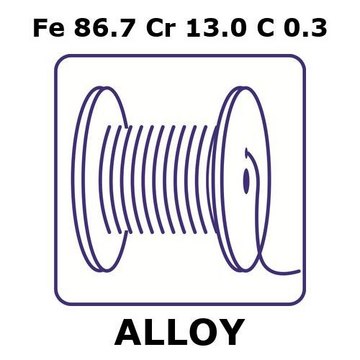SAB4700624
Monoclonal Anti-CD24-FITC antibody produced in mouse
clone SN3, purified immunoglobulin, buffered aqueous solution
Synonym(s):
Anti-CD24
Sign Into View Organizational & Contract Pricing
Select a Size
25 CM2
₩141,999
225 CM2
₩422,240
₩141,999
Please contact Customer Service for Availability
Select a Size
Change View
25 CM2
₩141,999
225 CM2
₩422,240
About This Item
UNSPSC Code:
12352203
NACRES:
NA.44
₩141,999
Please contact Customer Service for Availability
Recommended Products
biological source
mouse
Quality Level
conjugate
FITC conjugate
antibody form
purified immunoglobulin
antibody product type
primary antibodies
clone
SN3, monoclonal
form
buffered aqueous solution
species reactivity
human
technique(s)
flow cytometry: suitable
isotype
IgG1
1 of 4
This Item | GF82124940 | GF61020076 | GF88886266 |
|---|---|---|---|
| manufacturer/tradename Goodfellow 576-817-59 | manufacturer/tradename Goodfellow 821-249-40 | manufacturer/tradename Goodfellow 610-200-76 | manufacturer/tradename Goodfellow 888-862-66 |
| form foil | form wire | form wire | form wire |
General description
The antibody SN3 reacts with CD24, a 35-45 kDa heavily glycosylated cell surface antigen. CD24 is expressed by granulocytes, B lymphocytes and by some activated T cells and T cell malignancies. It is not expressed on human thymocytes.
Immunogen
Glycoproteins purified from human NALM-1 cell line
Application
The reagent is designed for Flow Cytometry analysis of human blood cells using 20 μL reagent / 100 μL of whole blood or 1e6 cells in a suspension. The content of a vial (2 mL) is sufficient for 100 tests.
Features and Benefits
Evaluate our antibodies with complete peace of mind. If the antibody does not perform in your application, we will issue a full credit or replacement antibody. Learn more.
Physical form
Solution in phosphate buffered saline containing 15 mM sodium azide and 0.2% high-grade protease free BSA as a stabilizing agent.
Disclaimer
Unless otherwise stated in our catalog or other company documentation accompanying the product(s), our products are intended for research use only and are not to be used for any other purpose, which includes but is not limited to, unauthorized commercial uses, in vitro diagnostic uses, ex vivo or in vivo therapeutic uses or any type of consumption or application to humans or animals.
Not finding the right product?
Try our Product Selector Tool.
Storage Class Code
10 - Combustible liquids
WGK
WGK 2
Flash Point(F)
Not applicable
Flash Point(C)
Not applicable
Choose from one of the most recent versions:
Already Own This Product?
Find documentation for the products that you have recently purchased in the Document Library.
Customers Also Viewed
Seiko Ishida et al.
Proceedings of the National Academy of Sciences of the United States of America, 110(48), 19507-19512 (2013-11-13)
Copper is an essential trace element, the imbalances of which are associated with various pathological conditions, including cancer, albeit via largely undefined molecular and cellular mechanisms. Here we provide evidence that levels of bioavailable copper modulate tumor growth. Chronic exposure
R Squitti et al.
Neurology, 67(1), 76-82 (2006-07-13)
To assess whether serum copper in Alzheimer disease (AD) correlates with cognitive scores, beta-amyloid, and other CSF markers of neurodegeneration. The authors studied copper, ceruloplasmin, total peroxide, and antioxidants levels (TRAP) in serum; beta-amyloid in plasma; and copper, beta-amyloid, h-tau
Magnus Andersson et al.
Nature structural & molecular biology, 21(1), 43-48 (2013-12-10)
Heavy metals in cells are typically regulated by PIB-type ATPases. The first structure of the class, a Cu(+)-ATPase from Legionella pneumophila (LpCopA), outlined a copper transport pathway across the membrane, which was inferred to be occluded. Here we show by
Hiroshi Sato et al.
Science (New York, N.Y.), 343(6167), 167-170 (2013-12-18)
Carbon monoxide (CO) produced in many large-scale industrial oxidation processes is difficult to separate from nitrogen (N2), and afterward, CO is further oxidized to carbon dioxide. Here, we report a soft nanoporous crystalline material that selectively adsorbs CO with adaptable
Stephen G Kaler et al.
The New England journal of medicine, 358(6), 605-614 (2008-02-08)
Menkes disease is a fatal neurodegenerative disorder of infancy caused by diverse mutations in a copper-transport gene, ATP7A. Early treatment with copper injections may prevent death and illness, but presymptomatic detection is hindered by the inadequate sensitivity and specificity of
Our team of scientists has experience in all areas of research including Life Science, Material Science, Chemical Synthesis, Chromatography, Analytical and many others.
Contact Technical Service




